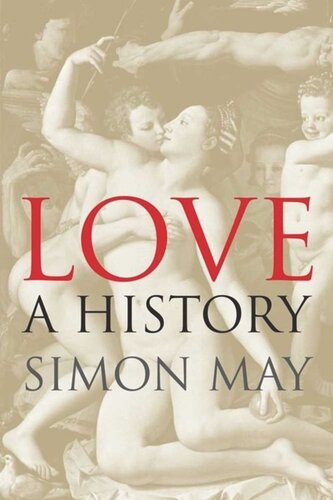

Most ebook files are in PDF format, so you can easily read them using various software such as Foxit Reader or directly on the Google Chrome browser.
Some ebook files are released by publishers in other formats such as .awz, .mobi, .epub, .fb2, etc. You may need to install specific software to read these formats on mobile/PC, such as Calibre.
Please read the tutorial at this link: https://ebookbell.com/faq
We offer FREE conversion to the popular formats you request; however, this may take some time. Therefore, right after payment, please email us, and we will try to provide the service as quickly as possible.
For some exceptional file formats or broken links (if any), please refrain from opening any disputes. Instead, email us first, and we will try to assist within a maximum of 6 hours.
EbookBell Team

4.4
52 reviewsLove—unconditional, selfless, unchanging, sincere, and totally accepting—is worshipped today as the West's only universal religion. To challenge it is one of our few remaining taboos. In this pathbreaking and superbly written book, philosopher Simon May does just that, dissecting our resilient ruling ideas of love and showing how they are the product of a long and powerful cultural heritage.
Tracing over 2,500 years of human thought and history, May shows how our ideal of love developed from its Hebraic and Greek origins alongside Christianity until, during the last two centuries, "God is love" became "love is God"—so hubristic, so escapist, so untruthful to the real nature of love, that it has booby-trapped relationships everywhere with deluded expectations. Brilliantly, May explores the very different philosophers and writers, both skeptics and believers, who dared to think differently: from Aristotle's perfect friendship and Ovid's celebration of sex and "the chase," to Rousseau's personal authenticity, Nietzsche's affirmation, Freud's concepts of loss and mourning, and boredom in Proust. Against our belief that love is an all-powerful solution to finding meaning, security, and happiness in life, May reveals with great clarity what love actually is: the intense desire for someone whom we believe can ground and affirm our very existence. The feeling that "makes the world go round" turns out to be a harbinger of home--and in that sense, of the sacred.